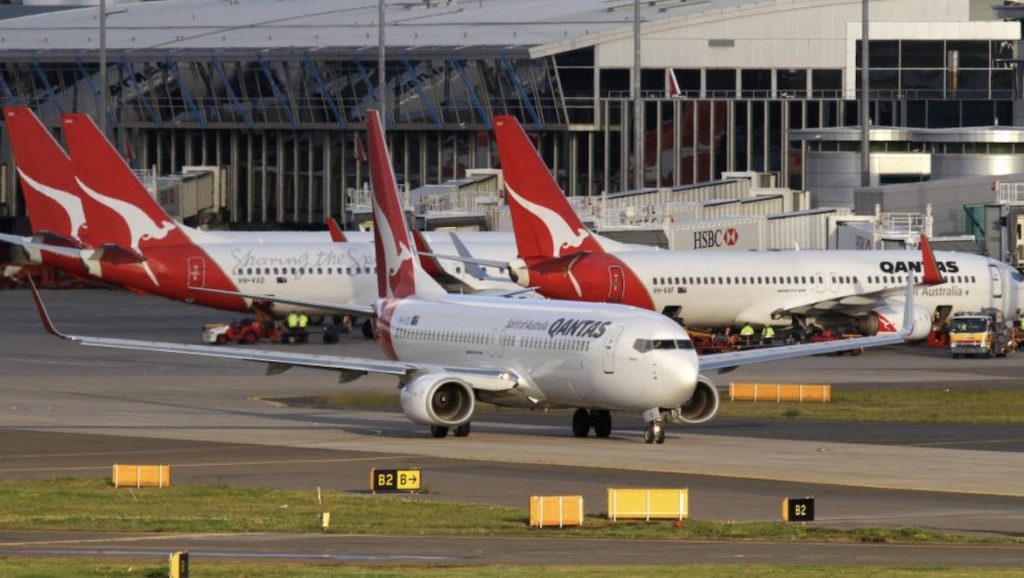
Qantas has reclaimed the lion’s share of the domestic passenger market from rival Virgin, however, has again failed to clinch its coveted 70 per cent share together with Jetstar.
According to the ACCC’s latest Airline Competition in Australia report, Qantas carried 37 per cent of all domestic passengers in April, taking the leading place from Virgin, which captured 31 per cent.
It comes after Virgin claimed victory over its rivals in January by securing 33 per cent share of all domestic passengers, while Jetstar and Qantas each secured a 31 per cent share.
In April, Jetstar lost part of this market share to full-service parent airline Qantas, with its own falling to 28 per cent.
This means together, the Qantas Group saw a total share of 65 per cent for the month, slightly higher than the 62 per cent seen in January, but still below its long-held target of 70 per cent.
Meanwhile, Rex again remained steady in April with its 4 per cent share.
Qantas CEO Alan Joyce has repeatedly suggested that Qantas will secure “at least” a 70 per cent share of the domestic market, despite Virgin’s stronger-than-anticipated recovery from the pandemic and voluntary administration process.
Speaking with CNN in September, Joyce said, “We’ll have 70 per cent domestic share at least, a lot better than we had pre-COVID – that’s where we make the bulk of our money.”
According to the ACCC report, 4.5 million passengers travelled domestically in April, making domestic travel figures currently around 89 per cent of pre-COVID levels.
“After two very challenging years, it appears the domestic airline industry is approaching a full recovery,” ACCC commissioner Anna Brakey said.
Meanwhile, Qantas, Jetstar and Virgin are all eyeing a return to pre-COVID flight capacity in the coming weeks and months, after the Omicron outbreak and surging fuel costs dampened these attempts earlier this year.
“A sustained recovery over the coming years will improve the financial health of the domestic airline industry and help secure the additional competition we’re seeing from new and expanding airlines,” Brakey said.
Elsewhere in the report, the ACCC also said that it had concluded its investigation into Qantas’ alleged anti-competitive and “predatory” behaviour in late March, after Rex sparked a formal complaint, confirming an earlier claim made by Qantas.
Last month, Australian Aviation reported that Rex’s expansion into the capital city domestic market had driven increasing competition among existing rivals, according to the ACCC.
“The Australian domestic airline industry has predominantly been a duopoly since deregulation 30 years ago, but we now have three airline groups competing on some of Australia’s busiest routes,” outgoing ACCC chair Rod Sims said.
“We’ve seen significant price reductions on these routes due to increased competition,” he said.
“Each airline is working hard to win over consumers and as they continue fighting for market share, we can expect competitive airfares, improved connectivity, and better products and services.”
Meanwhile, the consumer watchdog also confirmed that it is continuing to investigate Qantas’ flight credit policy, after receiving an influx of complaints from Qantas customers.
In March, Australian Aviation reported that the ACCC was appealing to the public for evidence that Qantas is raising prices on tickets purchased with flight credits accrued during COVID.
















Ashley
says:Wow! Rex has 4%……Sharp mouths off as if it’s tens of per cents’ more……